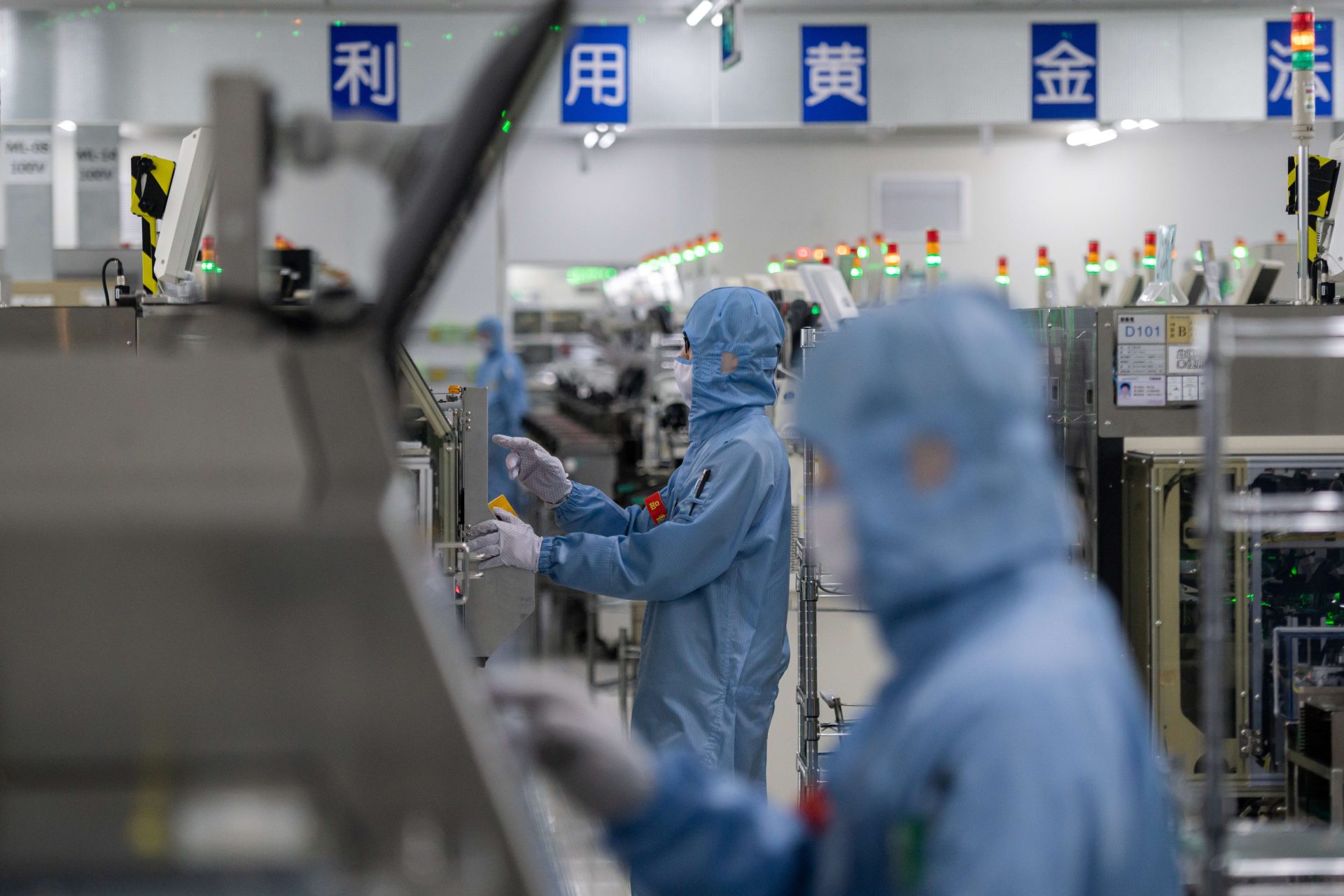U.S. President Joe Biden on Wednesday issued an executive order regulating American investments in China’s microchip, quantum computing, and artificial intelligence industries.
The order will limit China’s access to technologies “critical to the next generation of military innovation,” according to Biden administration officials who spoke on the condition they not be identified.
It comes ahead of a planned visit to Beijing later this month by Commerce Secretary Gina Raimondo, who has vowed to protect U.S. national security interests while still promoting trade with China, and amid an embryonic thaw in ties between Beijing and Washington.
Biden’s order creates a mechanism for the Commerce Department to ban certain investments in China across the “narrow subset of three advanced technology areas that have a national security nexus,” one official said, stressing it would create a “small yard with high fences.”
“This program will complement our existing export control and inbound investment screening,” the official said, and only target technologies key to military modernization. “It’s important to recognize this as a national security action, not an economic one.”
However, the official otherwise provided few details, and said that for certain investments in the three sectors, U.S. businesses would only be forced to notify the authorities of their planned investments.
The new regulations will also likely not take force until sometime next year, they said, and the Commerce Department would use that time as a “rulemaking” period to confer with impacted U.S. businesses.
No criminal penalties
Another senior administration official said discussing criminal penalties for investments in China would be “jumping the gun” at this stage. The Commerce Department would instead likely just be given the powers to “unwind” any incorrectly made investments in China.
“The goal here really is to make sure that we provide industry with clarity so that they recognize what is permissible, which is a great deal of investment, and what isn’t permissible, which is going to be a narrower scope of investment,” the official said.
There would also be “experts who will be able to give guidance to industry as they’re thinking through this” to help ensure that banned investments are not made in China in the first place.
Parts of the order may later be codified into law under the bipartisan 2023 Outbound Investment Transparency Act, the official added, which has already been added to this year’s defense spending bill.
That legislation has been led by Senate Finance Committee members Sen. Bob Casey, a Democrat from Pennsylvania, and Sen. John Cornyn, a Republican from Texas, and would require U.S. businesses to notify the Commerce Department within 14 days of any investments made in sensitive technologies in China, Russia, North Korea or Iran.
The latest order follows similar efforts by the Biden administration to cut off China’s military from access to high-end U.S. microchips, and a White House-backed bipartisan push to allow the executive branch to ban some foreign technology, like TikTok, from the United States.
Raimondo, the commerce secretary, has said she plans to visit Beijing this month, and has vowed to focus on “selling coffee and beauty aids to China” while staying “eyes wide open” about security threats.
Beijing has previously called such policies part of a “Cold War mentality” or “protectionist” policies meant to harm China’s economy.
Liu Pengyu, spokesperson for China’s embassy in Washington, said that the Chinese government was “very disappointed” that the Biden administration went ahead with the latest executive order despite Beijing voicing its concerns privately and publicly.
“China opposes the U.S.’ overuse of national security to politicize and weaponize trade, scientific and technological issues and deliberately making obstacles to normal economic and trade exchanges and technological cooperation,” Liu told Radio Free Asia.
“The U.S. side has repeatedly expressed its non-intention to ‘decouple’ with China, but what it actually did is repeatedly ‘decoupling and severing supply chains’ from China,” he said.







